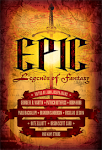Although I have not quite completed reading THE GLASS OF TIME, I began sneaking quick reads in Diana Gabaldon’s new book AN ECHO IN THE BONE. Each time I open one of her books I feel like I’m visiting old friends whom I have not seen for quite awhile. The historical events, in each of the series books, draw me to them, and they are well fitted to the story lines within. This book promises new insight into the American Revolution through the eyes of Jamie and Claire Fraser, and those of Lord John Grey and his son, William. Several recently read sentences:
“William saw Mrs. MacKenzie glance quickly at the harbor, then away. She looked pale, he thought, and maneuvered himself slightly so as to block her view of the men and the brown flood of high tide, though since it was high, the corpse tied to its stake was naturally not visible. The stake was, though– a stark reminder of the price of crime. The pirate had been staked to drown on the mudflats several days before, the persistence of his decaying corpse an ongoing topic of public conversation.”
My own work pales in comparison, however, a writer strives to improve. Several recently written draft sentences from my dark fantasy WIP “The Shadowlands”:
“Brother Cristo recalled when his cousin, Wilhelm, became head of the family after the untimely death of his eldest brother, and paid a visit to the monastery. He had been present when Wilhelm spoke to the Abbott.
“My cousin Cristo is dear to me. If he suffers, my opinion of the Cistercian way is bound to change.”
The Abbott had allowed a change in the church, where Brother Cristo kept the ledgers, in fear that the donations Wilhelm made would cease and be provided to another order.”
For other participants visit Women of Mystery.
Bad Dreams in the Night
19 hours ago















6 comments:
Your sentences gave me a wee chill.
Leah, it's a historical fact that monasteries paid lip service to those families who donated money to them.
As for Ms Gabaldon's method of dispensing with pirates, I'd say it's rather effective.
Thanks for sharing some of your writing!
I love the implied scheming and influence-peddling, Barbara!
I've thoguht several times about reading Diana Gabaldon but man those books are long.
Gary, you're quite welcome.
Clare2e, setting historical sequence can be fun.
Charles, they are excellent books for the historical events alone, though I do like the mix of genres Ms Gabaldon employs. This recent release provides an alternative look into the background of the American Revolution and how it affected the people in the colonies. I had known Loyalists left the U.S. to come to Canada, but was unaware many had been shipped back to England at the spur of the moment without funds or property. There is much detail in her books about many topics: i.e., medicinal plants, surgical techniques of the 18th century, historical detail including military tactics, the landscape where the action takes place, and how people behaved in the 18th century.
Post a Comment